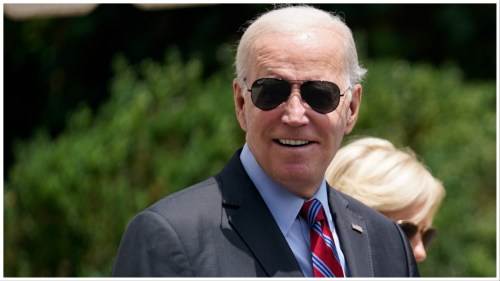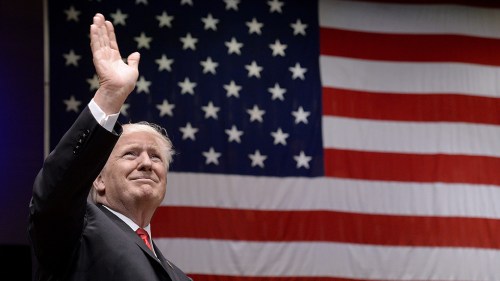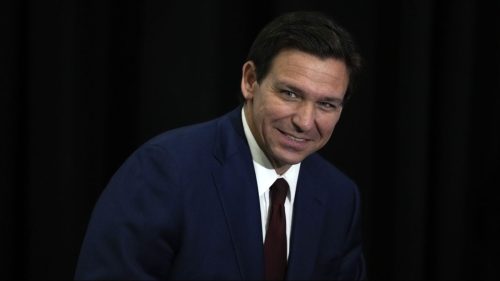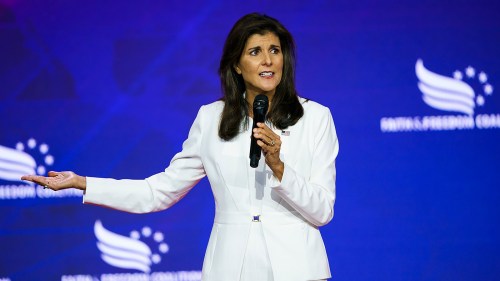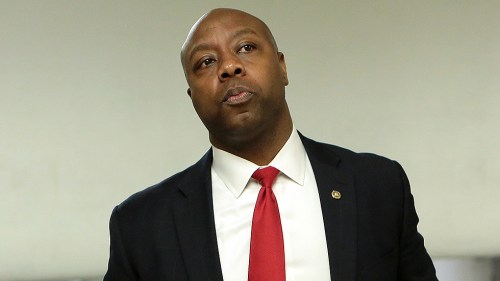RFK Jr. appears unlikely to make CNN debate stage
Robert F. Kennedy Jr. is unlikely to stand on the first debate stage next week, a setback that could throw him off course in his race against President Biden and former President Trump.
The independent candidate is determined to debate his Democratic and Republican rivals in Atlanta on June 27. But he’s running out of time to make the polling and delegate benchmarks that Biden and Trump have already surpassed before Thursday’s midnight deadline.
Failing to meet the eligibility criteria would be the first big blow for the third-party candidate struggling to remain relevant in the 2024 race.
“Though not impossible in Kennedy’s case, it is less likely that candidates other than Biden and Trump will meet those requirements,” CNN wrote in a memo over the weekend outlining logistics around opening statements and commercial breaks.
CNN has not budged on their conditions. Candidates must still clear at least 15 percent of support in four polls and be viable on enough state ballots to earn 270 delegates to participate in the forum with moderators Jake Tapper and Dana Bash.
Noting the time constraints, the cable news network has all but counted out a last-minute appearance from Kennedy, who has alleged without evidence that the candidates and journalists have manipulated the rules against him.
The 70-year-old environmental lawyer has had a bumpy path to ballot access, which will likely be the key factor that prevents him from meeting the deadline. The state-centric process has not been explored much during recent cycles because candidates registered with the two major parties don’t need to petition to get on ballots.
But as an independent, Kennedy’s path to the general election has meant learning individual state laws and nuances needed to secure ballots — and under intense deadlines. The debate has put additional time pressure on the process, making it nearly impossible for him to hit 270 delegates at this point.
Secretaries of state have the flexibility to decide when to count and certify candidates’ materials. While Kennedy claims to have made enough state ballots to clinch enough electoral votes to win in November — his campaign website shows 310 potential electoral votes — most states where he says he has gotten access won’t confirm his claims until later in the race.
Ballot experts say officials often prioritize accuracy over speed and aren’t up against the same time constraints as candidates.
“I don’t think anyone’s doing anything to handicap him,” said Scott Tranter, an analyst and adviser to Decision Desk HQ (DDHQ), which tracks Kennedy’s 2024 ballot access with The Hill. “I think they’re just trying to do everything by the book.”
Networks in charge of producing debates are also able to use their discretion over what they believe is fair to ask of candidates to be able to compete in front of televised audiences.
“They decide their own rules,” Tranter said about CNN, who released its criteria in mid-May. “It is their determination who qualifies or not; it is their determination what the rules are today and whether those are the same rules tomorrow.”
A pro-Biden source in Democratic circles offered a blunter prediction for Kennedy’s chances of meeting the deadline in less than 24 hours: “He’s not making the stage,” the source said.
The antiestablishment candidate’s all-but-certain miss of the first showing isn’t great optics for him, and some Democrats say it’s indicative of a broader issue he faces with fundraising and public perception.
“It plays into a larger pattern re: visibility,” said the Democratic source helping to reelect the incumbent president.
While the ballot access is the most obvious barrier, the fact that Kennedy hasn’t been able to clear the polling prerequisite is also a possible sign of wavering support.
“Tanking poll numbers, cash blow, ballot access challenges — he’s going to have a hard time making a case for electability with all of this combined as people are finally tuning in,” the Democratic source added.
Polling isn’t always clear on how Kennedy may alter the final outcome in the fall — or even if he’ll even get to that point. If he does go up against Trump and Biden in November, a DDHQ/The Hill polling analysis shows that he helps boost Trump at the national level. But when broken down into key battlegrounds like New Hampshire and Michigan, some polls show him giving Biden an edge.
Kennedy’s campaign did not respond to a request for comment from The Hill about whether he still believes he has a pathway to debate or if he’s planning counterprogramming that night.
For now, campaign officials are pursuing a legal track. His campaign filed a lawsuit against the Federal Election Commission last month alleging that Kennedy was held to “different criteria” than his counterparts, which they contend is against the Federal Election Campaign Act. The status of the complaint is ongoing but could potentially be resolved by the next scheduled debate in September with ABC News.
With less than a full day to make the 12 a.m. deadline, however, Kennedy can only do so much. Some figures willing to entertain parts of his nontraditional candidacy say he should maximize being away from the stage as a way to show off his position as an outsider.
“I definitely think he should,” said Cenk Uygur, a left-wing media personality who’s met privately with Kennedy and recently hosted him on his program, “The Young Turks.”
“It’s borderline cheating if they don’t allow him into the debates when he has been in double digits. What else does someone have to do to qualify?” Uygur said.
Uygur said he would be willing to offer up his own platform if Kennedy wanted to present an alternative show the same night. “I’m open to airing anything along those lines,” he said.
One Kennedy ally who recently advised him on a messaging issue added that he “definitely should do something” to make noise while Biden and Trump spar.
To others, the real test will come after the event wraps up, when candidates have a chance to prop up or potentially tweak the stories of their campaigns around what viewers saw in front of them.
“The debate expectations have less to do with the performances and more to do with the narratives before and after the debate,” said Michael Ceraso, a Democratic strategist who has worked on Sen. Bernie Sanders (I-Vt.) and Transportation Secretary Pete Buttigieg’s presidential campaigns.
Democratic observers are waiting to gauge Biden’s sharpness and stamina, and whether Trump damages himself with an unrestrained performance, much like he did in the first debate against Biden in 2020. Trump sympathizers, meanwhile, are gearing up for a night against an incumbent they see as inherently weak.
That doesn’t leave much bandwidth for Kennedy.
“Win or lose, I don’t imagine any candidate seeing spikes in their approval ratings based on debate performances. It’ll be the narratives they drive online, on the trail, or through their networks before and after the debate,” Ceraso said.
If Kennedy, however, can turn his failure to qualify into a personal grievance, he might have a chance of resonating off stage. His best bet, some believe, is to win by losing.
“RFK is betting on this, and the only way he wins is if his supporters believe he was denied entry to the debate due to unfair rules or the system working against him and he doesn’t perform,” Ceraso added.
Copyright 2023 Nexstar Media Inc. All rights reserved. This material may not be published, broadcast, rewritten, or redistributed. Regular the hill posts
